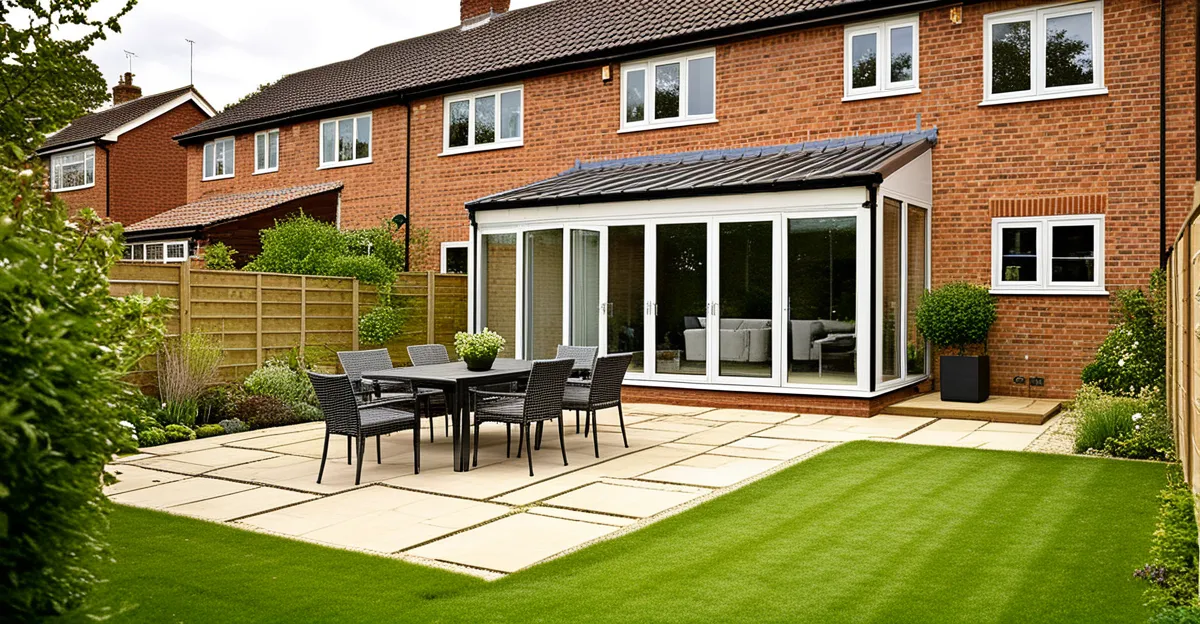Key Benefits of Sustainable Living Solutions in UK Homes
Sustainable living benefits UK homeowners by delivering energy savings and cost efficiencies that reduce monthly expenses significantly. By investing in eco-friendly home solutions, such as improved insulation or energy-efficient appliances, homeowners can lower their energy consumption, leading to noticeable savings on utility bills. This is particularly important in the UK, where heating costs can be substantial during colder months.
Another primary benefit is the reduction of carbon footprint through greener practices. Sustainable home improvements encourage the use of renewable energy and materials, cutting down greenhouse gas emissions. These actions contribute to national environmental goals and help combat climate change on a local scale.
Additional reading : How Can You Transform Your Living Space with Affordable Upgrades?
Additionally, adopting sustainable home solutions enhances property value. Upgrades like double-glazed windows, efficient heating systems, and solar panels not only appeal to environmentally conscious buyers but also increase a home’s market competitiveness. This reflects a growing trend within the UK property market where buyers are prioritizing eco-friendly features.
In summary, the advantages of sustainable living solutions in UK homes encompass financial savings, environmental responsibility, and increased property worth. These three factors make sustainable improvements a smart and impactful choice for homeowners looking to invest in both the planet and their future.
In the same genre : What Are Innovative Ways to Incorporate Green Living into Your UK Home Décor?
Practical Sustainable Technologies for UK Homes
Sustainable technologies UK homeowners often adopt include solar panels, insulation, and heat pumps, each playing a critical role in enhancing a home’s eco-friendliness. Solar panels convert sunlight into electricity, enabling homeowners to generate renewable energy, reducing reliance on fossil fuels. This technology not only cuts carbon emissions but also lowers energy bills, offering tangible sustainable living benefits UK residents seek.
Insulation works by minimizing heat loss, helping homes retain warmth during the colder months typical in the UK climate. Effective insulation improves energy efficiency drastically, leading to cost savings and greater comfort. It also supports sustainable home improvements by reducing the energy demand for heating.
Heat pumps operate by extracting heat from outside air or ground sources, even in low temperatures, and transferring it indoors for heating purposes. This method uses electricity more efficiently than traditional boilers, contributing significantly to sustainable living benefits UK families experience.
In recent years, adoption rates have increased due to rising energy costs and growing environmental awareness. For example, UK government initiatives have led to more households installing solar panels and upgrading insulation. These sustainable technologies form the backbone of eco-friendly home solutions, offering practical paths to reducing carbon footprints and improving home energy efficiency.
Financial Incentives and Long-Term Savings
Government incentives UK homes receive play a pivotal role in encouraging sustainable home improvements. Various eco grants UK programs offer financial support, reducing upfront costs for installations like solar panels, insulation, and heat pumps. These grants make eco-friendly home solutions more affordable and accessible, directly impacting adoption rates among UK homeowners.
Energy bills savings form a significant part of the long-term benefits for those who invest in sustainable living benefits UK residents seek. By lowering energy consumption through efficient heating and renewable energy technologies, households witness consistent reductions in monthly utility bills. This financial relief accumulates over time, making initial investments economical in the long run.
Moreover, these incentives broaden the appeal of sustainable technologies UK, accelerating their integration into more homes. For example, government schemes often cover a portion of costs or provide tax relief, effectively lowering barriers to entry. As a result, sustainable home improvements become viable for a wider demographic.
In sum, government incentives combined with ongoing energy bills savings offer clear financial advantages, further strengthening the case for investing in sustainable solutions in UK homes.
Health and Wellbeing Improvements from Sustainable Living
Sustainable living benefits UK residents notably by enhancing indoor air quality through the use of eco-friendly home solutions. Materials chosen for sustainable home improvements often emit fewer volatile organic compounds (VOCs) and allergens, reducing indoor pollutants. This leads to cleaner air inside homes, directly supporting respiratory health and overall wellbeing.
Improved ventilation is another key aspect. Sustainable homes employ designs and technologies that maintain fresh air flow while conserving energy. This balance prevents excessive moisture and mold growth, common contributors to poor indoor air quality UK concerns. By controlling these factors, residents enjoy healthier environments conducive to better sleep, reduced allergy symptoms, and increased comfort.
Wellbeing eco homes also promote thermal comfort. Energy-efficient insulation and heating systems stabilize temperatures, minimizing drafts and cold spots prevalent in older homes. Comfortable indoor climates reduce stress on the body and foster a greater sense of wellbeing. This comfort, combined with healthy air, creates living spaces that support both physical and mental health.
Moreover, healthier homes initiatives in the UK increasingly emphasize the connection between sustainable living benefits UK families seek and long-term health outcomes. As a result, more homeowners are prioritizing improvements that contribute to wellbeing, recognizing that sustainable home improvements offer value beyond energy savings and environmental impact.
Impact on UK Property Value and Market Trends
Sustainable home improvements have a notable effect on property value UK sustainability metrics. Homes equipped with eco-friendly home solutions such as solar panels, advanced insulation, and energy-efficient heating systems tend to command higher resale prices. This premium reflects the growing buyer interest in energy savings, lower running costs, and reduced environmental impact. Studies consistently show that properties featuring sustainable upgrades often sell faster and at a better price than comparable conventional homes.
The green homes market trends indicate a sharp rise in demand for eco-conscious properties. Buyers increasingly prioritize sustainability credentials, influenced by both environmental awareness and practical considerations like lower utility bills. Real estate agents report that homes marketed as eco homes attract a broader audience, including younger buyers and families keen to adopt sustainable living benefits UK-wide. This demand shift encourages homeowners to invest in sustainable home improvements, knowing these upgrades enhance marketability.
Recent UK real estate data underscores the resale value eco homes enjoy. Properties with certified green standards or energy performance certifications typically show resilience against market fluctuations. Their appeal extends beyond energy savings, encompassing health benefits and long-term cost efficiencies highly valued by prospective buyers. As a result, sustainable living benefits UK homeowners not just through daily savings but through stronger asset appreciation, confirming that eco-friendly enhancements are a worthwhile investment feature in today’s property market.









